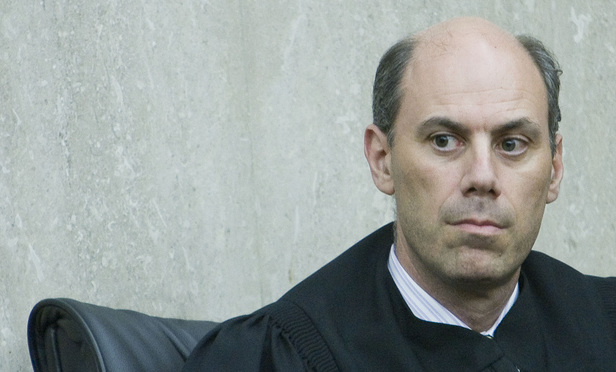Boasberg, on the bench since 2011, is known on the D.C. federal bench for his colorful, easily digestible prose. In a ruling in January, he referenced the TLC song “Waterfalls” in a dispute involving a U.S. Securities and Exchange Commission settlement with JPMorgan Chase & Co. McClatchy once called Boasberg “reliably readable.” The publication in another instance said Boasberg’s writing “demonstrates how a simple conversational style can welcome the reader.”
Boasberg’s certainly not the first federal judge to call out a party for excessive footnoting. U.S. District Judge Beth Labson Freeman for the Northern District of California in 2015 struck a filing from plaintiffs lawyers at Hagens Berman Sobol Shapiro who filed a 25-page brief loaded with 76 footnotes.
“Every page of the opposition contains at least two—and, on one page, eight—footnotes,” Freeman wrote. She ordered the lawyers to file new papers sans footnotes.
What about the U.S. Supreme Court? Justice Stephen Breyer eschews footnotes in his opinions—the only justice on the current U.S. Supreme Court to take such a position.
In a 1995 interview with the high court’s in-house newsletter, The Docket Sheet, he traced his footnote-less approach to advice from Justice Arthur Goldberg, when Breyer was appointed to the U.S. Court of Appeals for the First Circuit. Goldberg, for whom Breyer had clerked, told the new judge: Don’t use footnotes.
“And somewhere quite soon after becoming a judge I did stop using footnotes,” Breyer said. “Sometimes it’s awkward to use none at all, but if in fact you even use one, then you cannot make the point.” He added: “Either a point is sufficiently significant to make, in which case it should be in the text, or it is not, in which case, don’t make it.”
Indeed, the legal writing expert Bryan Garner has long encouraged lawyers and judges to refrain from “putting any discussion” in footnotes. On Twitter earlier this year, Garner wrote: “I detest footnotes! Isn’t that coming through? Nothing needed to be read should be put there.”
In the D.C. Circuit, the problem isn’t often footnotes but instead the overuse of uncommon acronyms. The court occasionally issues orders to parties either warning them to use acronyms sparingly, or even asking one party or another to refile a brief that spells out the name of the agency or the federal statute.




